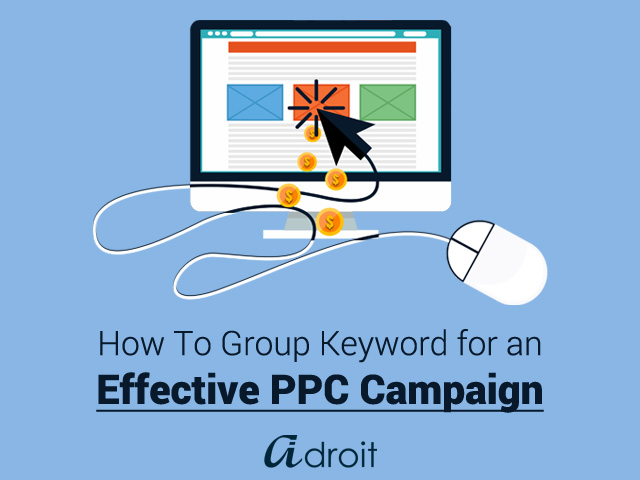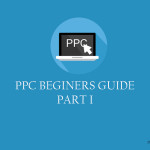
Keyword Grouping for paid search is a crucial activity for your PPC campaign. This step is important because the keywords decide what kind of search terms will likely bring up your Ad. It’s by far the best way to improve your ad’s click-through rate (CTR) and quality score. A good use of keywords in your ads can bring down your Cost Per Click and improve your Ad relevance. On the flip side, a wrong choice of keywords and keyword group will make this entire episode a fruitless exercise. Beginners at PPC marketing often find it a daunting task to be able to group keywords accurately. Better keyword grouping leads to better targeted text ads for effective PPC marketing. Selecting the right keywords for your Pay Per Click Campaign involves time, proper strategy, and the right budget allocation. If you do not have the time, understanding or resources to do this, consider hiring a professional PPC team to streamline your Pay Per Click Ad campaign. Below are the steps to help you come up with a good keyword group for your first PPC Ad campaign.
Research on keywords of your niche.
- List out the keywords and phrases (up to five words long) that are relevant to your business. include potential search queries that users may type to look for each of the services or products you offer. Fish out alternate terms and word combinations that qualify.
- Look for potential keyword variations to determine which search terms or keyword combinations show an user’s intent to buy/sign up/subscribe – basically show signs of a response to your call-to-action. Choose these keywords and make multiple Ad copies.
- Also refer to Google analytics for search queries related to your domain and build your branded keyword list.
The keyword research enables one to get a fair idea on the number of clicks one can expect from the ads. You will also get an idea of the average cost of keywords from AdWords. The cost of keywords differs from industry to industry based on the keyword competition. For example, average cost per click for a pizza ad and a website development Ad won’t be the same.
So an appropriate keyword research will help keep a reasonable expectation on your Ad’s ROI.
How to group keywords?
Once you have a complete list of keywords for your Ad campaign, time to segment your keywords for ads.
- Classify the keywords under different categories by looking for a common thread. Categories could be product/service based, offer based, short/long-tail keywords or keyword groups based on cost.
- Choose keywords with the right balance between too generic or too specific keywords. Two to three words long queries or keywords are a good length, but there are no hard and fast rule. The will ensure you are neither too specific in your keywords and do not miss out on clicks, nor do you get clicked by general visitors simply wanting information without the intent to respond to the call to action.
- Classifying keywords in terms of profitability allows you to focus on the driving value of the keyword. Here keywords with greater performance and lower fluctuation can create better space for profitable adword keywords. In that way you can assess the right density of keywords in the list for an effective campaign structure.
- Each Ad should redirect to the appropriate landing page with the exact same context. Each segment should directly relate to the corresponding ad and ad texts in the products page of your website. Also keyword specific URLs help to develop relevance and quality of the ads in the account.
- After every broad keyword research, one should form top-level groups around the said product or services. So if one sells furniture, for example, the top level group should include ‘beds’, ‘tables’ and ‘sofa’. Then comes creating smaller sub groups by breaking the top-level group. The subgroups under table group may include coffee table, dining table etc. This way one creates a hierarchy with all the top level groups. This process should continue until the low level group looks small and compact. Also one should keep an eye on the modifiers and verbs to get intent of the buyer. After proper segmenting one can add those words in different groups making the whole process quite easier.
There are some free keyword grouping tools out there that can help a beginner PPC marketer during this process. Google’s Keyword Planner tops the chart, following Google auto-complete, and there are some other non-Google free keyword tools that you may use.
A comprehensive keyword group, segmented in terms of relevance, is critical to the success of a paid search campaign. PPC ad groups allow the search engine to determine that the campaign is targeting a specific audience. But is that all you need keyword groups for?
Why do you need keyword grouping? For more than just PPC.
Keyword grouping is pertinent for both PPC as well organic SEO, starting right from copywriting, topic selection, on page SEO, off page optimization etc.
Once the keyword segmentation is done, here is how you track and maintain the best keyword groups for your Pay per click Ad campaign.
- Once your Ad is live, focus on keywords driving maximum traffic and generating higher conversions. Outline your optimization process accordingly.
- Ad groups delivering highest clicks, impressions and conversions should be fragmented into smaller groups or ad specific groups.
- Aim for long term returns. Build groups to scale new keyword ideas, products and services adequately without being too constricted.
- If one’s business is based in more than one region, creating location specific campaigns is advised. Multi region advertising campaign should be done by translating the local language and proper availability of the product and services in the region.
This sounds like a really big deal but you don’t absolutely have to go through this on your own. You can hire a successful PPC marketing agency to get intelligent Keyword grouping suggestions for a small fee, and get better results from their years of experience and expertise in Pay Per Click Campaigns. And if you are a budding SEO or an entrepreneur who wants to save the bucks and give it a try – follow these steps, review the outcome, tweak and test. Repeat the process until you gain an understanding of the PPC platform, dive in, start slow and keep experimenting until you are able to fine tune your Google Ad campaign that generates the best ROI.
Good luck!


 (1 votes, average: 4.00 out of 5)
(1 votes, average: 4.00 out of 5)






